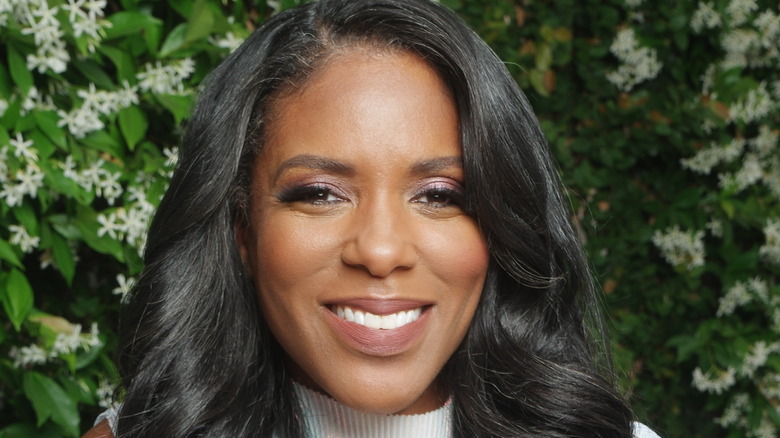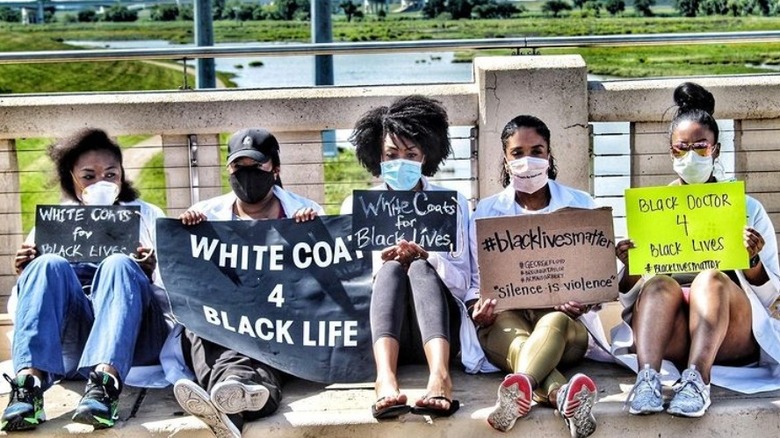Dr. Jessica Shepherd Gets Real About The Black Maternal Health Crisis In The US – Exclusive
According to the American Medical Association, Black women are three times more likely than white women to die of pregnancy-related causes. Research has found that this disparity is independent of income, education, and overall health.
The problem is so severe and pervasive that it's been dubbed a health crisis. The American Medical Association, the Centers for Disease Control and Prevention, and even the White House have all launched initiatives to address this issue. All of these institutions agree that unconscious or implicit bias is one of the driving forces behind the Black maternal health crisis, and each of their initiatives include education on bias for doctors and hospital staff.
Dr. Jessica Shepherd, an OB-GYN and women's health expert, is a prominent voice in the conversation about this health crisis. In an exclusive interview with Health Digest, Dr. Shepherd discussed why this crisis exists and how the health care system needs to do better for Black women.
Racism in health care
Dr. Jessica Shepherd was unambiguous when she addressed the causes of, as she put it, the "Black maternal mortality" crisis. "We live in a country that has the best health care system, and organization, and hospitals, and research in the world, but yet we're still seeing numbers that reflect we are missing the mark a lot," Shepherd told Health Digest. "And so, to be quite frank, a lot of that comes down to the racism that we see in health care," she continued. "Even last year, the American Medical Association listed racism as a public health issue. And [we're] able to call it to name, and really just say this is the fundamental issue."
Shepherd went on to say that one of the ways this racism shows up in the health care system is the lack of diverse representation where it could be especially impactful — at the leadership level. "There needs to be [a] change in representation in who is at the head of these tables — because that's where the actual laws or legislation is made. And if there's no representation from that level, then you truly won't have a diverse, trickle-down effect," she explained.
Communication and education are critical
Dr. Jessica Shepherd isn't just focused on the problem. No, she's also focused on solutions, like improving doctor-patient communication and education in Black communities. She stressed the importance of learning "how to communicate with people who may not look like you, have experiences like you." She continued, saying, "And then that goes to [addressing] our biases as well, that we don't think we have but are really there. That really takes an individual internal look at 'what am I doing to contribute to this issue and what can I do to offset that issue?'"
Shepherd also stressed the need for comprehensive education within Black communities. She pointed out that access to high-quality health care and even access to health care in general is a well-documented problem in Black communities, making it that much more difficult to advocate for oneself in health care settings. Shepherd, like many other doctors, unequivocally believes that the health care system needs to better serve Black women — and that it absolutely can with some added effort.
Dr. Jessica Shepard is an OB/GYN and Medical Advisor to O Positiv. To learn more about O Positiv's doctor-approved gummy vitamins, visit OPositiv.com.



